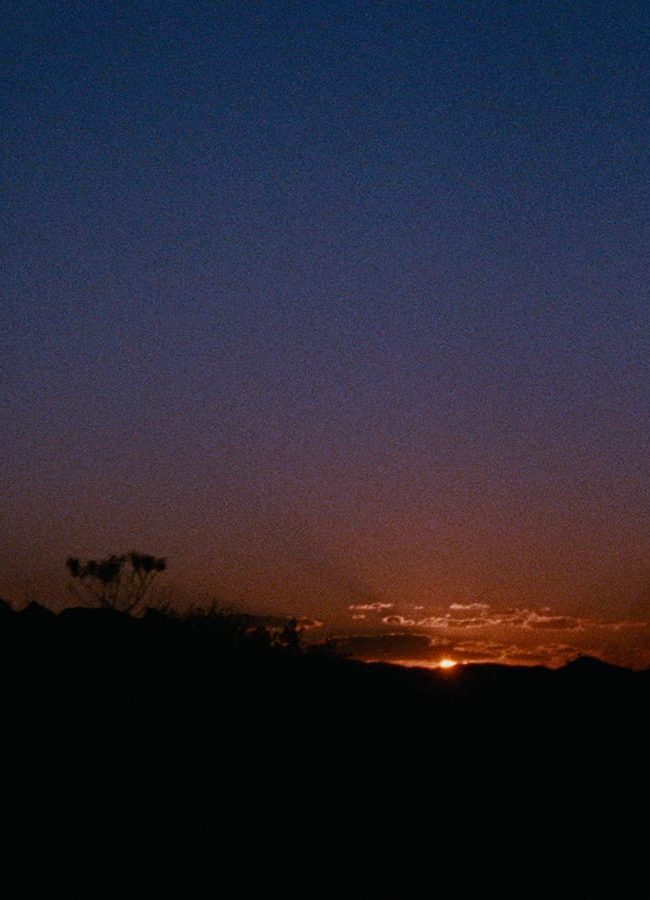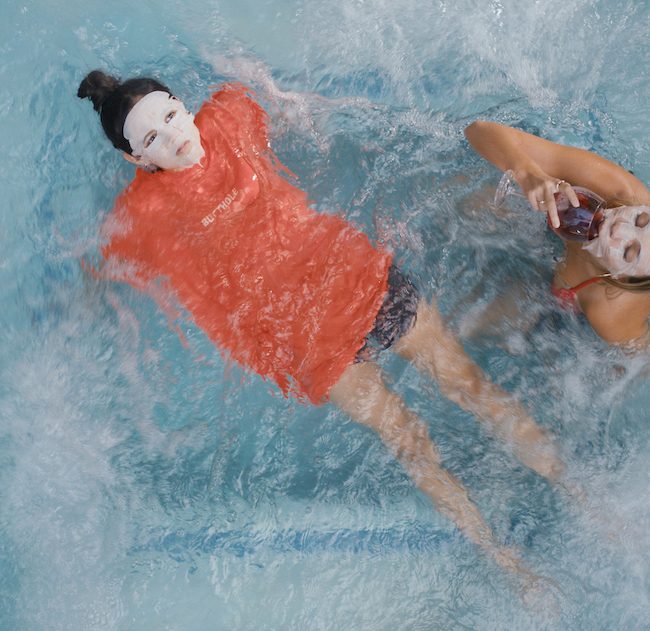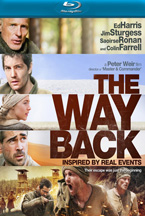
(The Way Back is now available on DVD and Blu-ray through Image Entertainment.)
The Way Back belongs to an odd breed of film: the unseen epic. Made for a not-unreasonable $30 million, Peter Weir’s return to directing after a seven-year hiatus was met with positive reviews but nonetheless failed to recoup its budget in theaters last fall. Curiosity as to why this might be served as the main impetus for taking a look at the film now that it’s available for home viewing, but I must say I’m still a bit perplexed: The Way Back strikes me as a rather accessible and engaging film that should have had an easier time finding an audience. Arduous but ultimately uplifting, it’s very much a journey, and therein might lie its problem: its realism. There’s a certain naturalism at work here, and Weir seems determined to let the endless landscapes and troubles that make up his film speak for themselves—but they may be speaking too softly for some.
For my part, the film’s relative obscurity seems to be an oversight. Granted, Weir’s characters—escapees from a Siberian gulag en route to Tibet at the height of World War II—are vessels for hardship as much as they are standalone beings, but oh, what hardships they contain. The four-thousand-mile trek that serves as the bulk of The Way Back‘s narrative is replete with harsh realities and obstacles. For the most part, the director neither sugarcoats nor magnifies the proceedings. Death via starvation or exposure (be it to cold or, later, heat) is a constant threat and often a reality for Weir’s based-on-a-true-story pilgrims. When death does occur, it’s unceremonious: several die along the way, and all the survivors can do is carry on without their fallen comrades. In presenting humans as the slabs of meat they’re sometimes reduced to, Weir foregoes certain cinematic tools in favor of naturalism. At times problematic insofar as it tends to stymy emotional engagement, there’s something to be said for an unembellished movie of this sort. Weir avoids the lion’s share of clichés associated with WWII dramas, and crafts an understated film out of rather heavy set-pieces.
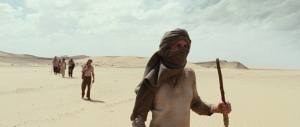 A memorable stylistic flourish (and something of an exception to the understatement) occurs early on, when the escapees don thin layers of tree bark as masks to provide some semblance of protection from the Siberian snow they’re traversing. The image of seven men running through the snow with their faces obscured passes quickly and is never mentioned again in any form. Within those few seconds, however, they embrace the faceless beings they’ve been treated like by their captors in an act of rebellion and liberation. In hiding their faces, they reveal a heretofore-unseen aspect of their inner selves. Prison and the road are both ideal settings for displaying characters’ true colors, and those of The Way Back stretch a wide spectrum. There’s much darkness to be found here, but the film is ultimately a celebration of the human spirit’s indomitability. The gulag itself is run from without by the iron fist of the Soviets and from within by the sang-froid of its more enterprising inmates. But Weir doesn’t focus on them. His protagonist is called out for being too kind mere minutes into the film, a trait that his traveling partners slowly absorb. Not without notes of sentimentality (especially as seen in a superfluous coda), The Way Back is nonetheless a worthwhile testament to the human will, to what must be done in order to survive.
A memorable stylistic flourish (and something of an exception to the understatement) occurs early on, when the escapees don thin layers of tree bark as masks to provide some semblance of protection from the Siberian snow they’re traversing. The image of seven men running through the snow with their faces obscured passes quickly and is never mentioned again in any form. Within those few seconds, however, they embrace the faceless beings they’ve been treated like by their captors in an act of rebellion and liberation. In hiding their faces, they reveal a heretofore-unseen aspect of their inner selves. Prison and the road are both ideal settings for displaying characters’ true colors, and those of The Way Back stretch a wide spectrum. There’s much darkness to be found here, but the film is ultimately a celebration of the human spirit’s indomitability. The gulag itself is run from without by the iron fist of the Soviets and from within by the sang-froid of its more enterprising inmates. But Weir doesn’t focus on them. His protagonist is called out for being too kind mere minutes into the film, a trait that his traveling partners slowly absorb. Not without notes of sentimentality (especially as seen in a superfluous coda), The Way Back is nonetheless a worthwhile testament to the human will, to what must be done in order to survive.
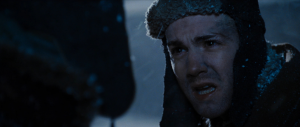 Audio/Visual: The Way Back‘s color palette speaks directly to Weir’s tonal intent, and this Blu-ray affords an exceptionally clear expression of it. The director uses shifts in color to underline not only changing locales but also the exact tests of strength and will his characters endure: the blue-tinted snow of Siberia signals the unfeeling prison system; Mongolia’s waterless plains are dominated by a yellow sun and sky. These treacherous x are written on the characters’ bodies—dried, cracked lips; swollen, pus-filled feet—and, whether you want to or not, you’ll see the utmost detail of each and every mark. Similarly, the wind doesn’t just blow in The Way Back; it howls. “Nature is your jailer, and she is without mercy,” says a guard in the film’s first few minutes, something to which Weir’s focus on ambient sights and sounds—which are as immersive on this Blu-ray as can be hoped for—can attest. Conversely, and possibly owed more to an abundance of Russian accents than the sound mixing itself, dialogue is often difficult to discern. Expect to occasionally make use of the English subtitles on this one.
Audio/Visual: The Way Back‘s color palette speaks directly to Weir’s tonal intent, and this Blu-ray affords an exceptionally clear expression of it. The director uses shifts in color to underline not only changing locales but also the exact tests of strength and will his characters endure: the blue-tinted snow of Siberia signals the unfeeling prison system; Mongolia’s waterless plains are dominated by a yellow sun and sky. These treacherous x are written on the characters’ bodies—dried, cracked lips; swollen, pus-filled feet—and, whether you want to or not, you’ll see the utmost detail of each and every mark. Similarly, the wind doesn’t just blow in The Way Back; it howls. “Nature is your jailer, and she is without mercy,” says a guard in the film’s first few minutes, something to which Weir’s focus on ambient sights and sounds—which are as immersive on this Blu-ray as can be hoped for—can attest. Conversely, and possibly owed more to an abundance of Russian accents than the sound mixing itself, dialogue is often difficult to discern. Expect to occasionally make use of the English subtitles on this one.
Supplements: Quality trumps quantity here. Aside from a theatrical trailer, the only special feature to speak of is a thirty-minute featurette entitled “The Journey of the Journey” which details certain aspects of The Way Back‘s production. The film’s principal cast (which includes Jim Sturgess, Ed Harris, Saoirse Ronan, and Colin Farrell), various crew members, and Weir himself provide historical context and their own insights. Fortunately, everyone involved shies away from cheerleading and gives their honest take instead. One of the most fascinating tidbits—and one which addresses the complaint that the film’s characters aren’t fleshed-out enough—involves Weir revealing that he thought of scouting for locations in much the same way as casting actors. “Who’s going to play Siberia?” he asked himself at one point, eventually choosing Bulgaria. This points not only to the equalizing quality of The Way Back‘s unforgiving locations, but the ability of a film’s setting to become a character itself. Given how striking these settings are, the above-mentioned accusations begin to seem unfounded.
— Michael Nordine








